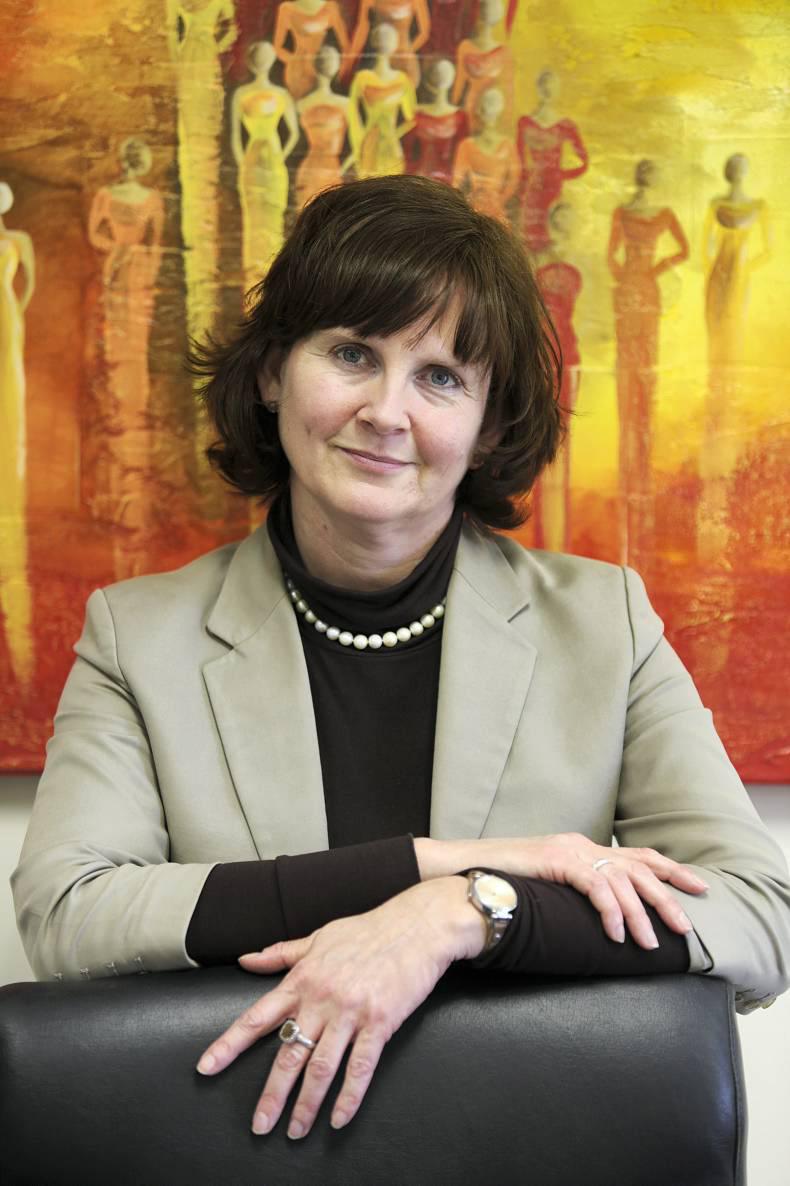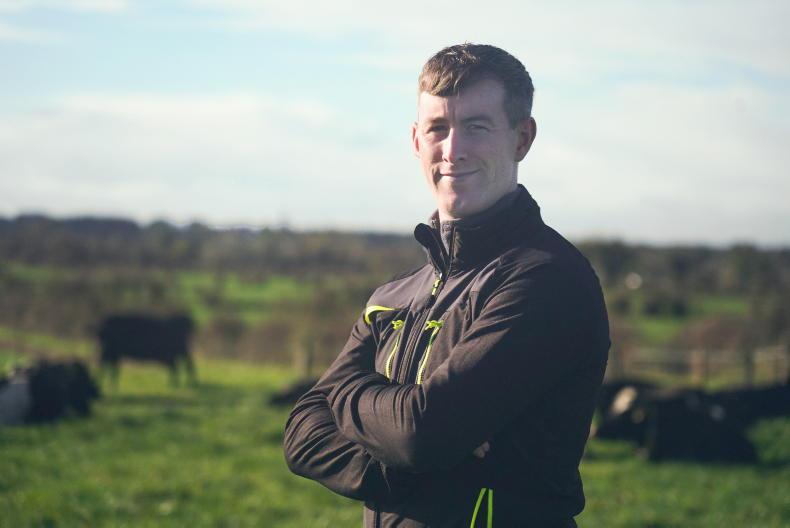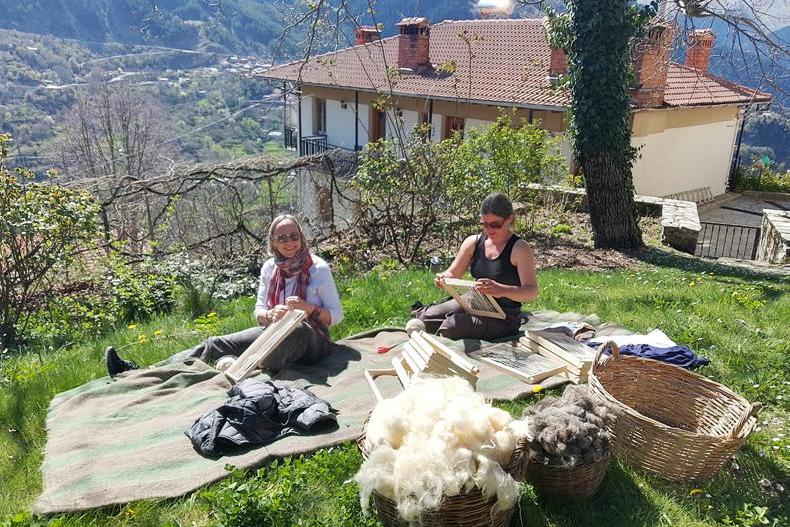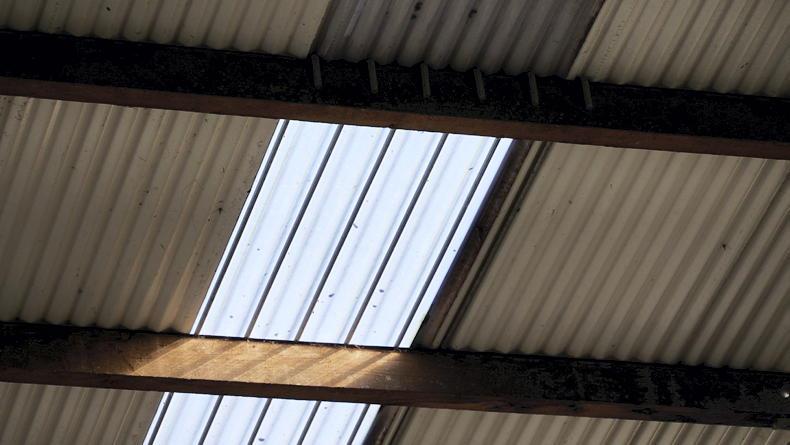Doirin Graham reckons she’s the only girl from her school who went on to study agricultural science at UCD. A Dubliner born and bred, she grew up in Sutton and went to an all-girls secondary school in Baldoyle.
“Certainly up to the time I went to UCD no one had ever done ag science, and I haven’t come across any one since. Of course, ag science wasn’t on my horizon either. I loved history and had applied for law. Then one day I was going to school with my dad and, like a bolt out of the blue, I told him I knew what I wanted to do,” she says.
Luckily, she did biology for the Leaving Cert, but the first year of ag science was still a struggle.
“It was scary, with an honours maths equivalent, chemistry, physics and computer science – and I’d never even seen a computer.”
When Doirin began college in 1984, the general degree was five years with the middle year a practical one. She worked as a farm labourer on four different farms that year.
“I wanted to know what farming was all about and I also wanted to learn what it was like to live in a rural community. The year gave me that and so much more,” she says.
After her degree, Doirin went on to do a master’s in rural development with Prof Joe Mannion at UCD. It was a taught master’s and her thesis was on subsistence farming in Tanzania.
Her first real job was with an INTERREG training programme in Monaghan, Louth and the border region. The work was with schools, voluntary boards and community groups.
“I’d never been over the border and nowadays it’s hard to imagine how intimidating the checkpoints were. The work was great training and was moving me towards rural development rather than the technical end of agriculture.”
Clare beckons
At about that time, Joe Mannion was working with Fr Harry Bohan on a milk project for west Clare and word came through to Doirin of a vacancy for a projects officer with the first LEADER programme in Clare.
“Fr Harry was already working with Clare LEADER and he needed someone to put people’s plans together and I got the job. The work was about finding the best projects, getting the funding to them and ensuring nothing went astray.
“There wasn’t much guidance from the Department, no big thick manual like now. That was 22 years ago and I never thought I’d still be here,” she says.
Doirin found the job to be both interesting and challenging, and many of the early projects she worked with not only survived, but prospered. These include Cratloe Hills Cheese, the Burren Smokehouse, Clare Foods, Irish Seedsavers Association and Irish Natural Stone Products, to name but a few.
“We had two development officers on the ground working with community projects. I recall we worked on a quality mare scheme that gave us outreach to a lot of farms in the county. Some very successful progeny emerged from it too.”
Rural Resource Development (RRD) was largely a LEADER company until 2009, when it amalgamated with three social inclusion groups to form the Clare Local Development Company (CLDC). While there was initial fear of being submerged into a bigger structure, the formula has worked.
The legacy of LEADER in Clare
“The legacy is tangible in what’s been built and constructed. In financial terms, the total LEADER investment in Co Clare since the first programme began in 1992 is €44m, and that’s a combination of public funds and private and local investment.
“In developmental terms, it’s given communities a focus for coming together to organise themselves, identify what they need, develop their plans and get them up and running. LEADER is tapping into what many communities already have: enthusiasm and belief.”
Doirin never fails to be amazed at what communities are prepared to take on.
“These are voluntary people who take on massive loans and give up so much of their time and energy to make projects work, to put life into them. The groups bring people together and they do development better than anyone else.
“Our job is to help communities build their abilities, to make them be as good as they can be. We could relieve them of stuff such as tendering, but they are well able for it. They are resourceful and able to draw on all the skills and resources of their communities,” Doirin says.
LEADER’S future
The current proposal is that LEADER will be given to a local government committee and it will make the funding application and assign how the money is spent. In the case of Clare, the CLDC will be just one of 21 members of the new LCDC (Local Community Development Committee).
“In my opinion, the LCDC can’t deliver the LEADER programme. It’s splitting the decision-making role from the delivery role. Community-led development is both together, and what this new alignment process is doing is splitting them apart. LEADER will become just a subcontractor with no power to make decisions.
“In effect, what’s happening is that under the direction of the Department of the Environment, local authorities are doing a top-down smash-and-grab to take control of LEADER.”
Strong words, but Doirin is adamant this is what’s happening.
“Initially, the Department of the Environment made it clear that it wanted the LCDCs alone to apply for LEADER funding and then subcontract delivery of the programme. In doing so, this would remove all authority for decision-making from the bottom-up community-led structure, which is the essence of LEADER.”
However, even the commitment to give the local development companies delivery of the programme in its entirety is no longer guaranteed.
“The Government has pulled back on that. I can see a situation where the new local enterprise offices would be given the enterprise funding and the council planners would get funds earmarked for community. It would leave the old LEADER companies with the scraps and dismantle over 21 years of hard work.”
Fighting back
After huge public displays of support and pressure from the European Commission, the Department has now conceded that LEADER groups may apply, but the LCDC bid is the preferred outcome. That pressure also saw the removal of financial hurdles that would have made it impossible for existing LEADER companies to apply for the next round of funding.
“Even if LEADER companies apply and there are competing bids in the one area, a Government-appointed panel will decide the outcome. But how can this be fair when the authorities have already said that the LCDC bid will be the preferred option?
“Incredibly, some LCDCs who may have no interest in applying for the LEADER programme will be ordered to do so, according to a statement in the Dáil by Alan Kelly on 20 January.”
According to Doirin, the European Commission is actively watching the situation and has not as of yet signed off on the proposal.
“LEADER was a shining light and if it wasn’t so successful it would never have become the envy of so many local authorities and a pawn in the political manoeuvrings around local government reform.”
In Doirin’s opinion, the plan also compromises the ability of local development companies to deliver their many smaller programmes.
“We are custodians of community-led rural development. We don’t have the right to just hand that over to the local authority. We have to fight for it.”
In the last few weeks, the board of Clare Local Development Company has confirmed it will submit a bid for the next tranche of LEADER funding.
“If the existing local development companies compete, at least we have a hand of cards to negotiate with,” says Doirin.
Fact Box:
Watches: “I loved The Hobbit movies. On TV, it’s Borgen, Downton Abbey, Ear to the Ground and rugby Six Nations and Munster. Then it’s Clare for hurling and Dublin for the football.”
Wears: “I represent the company so I like to dress smartly, but not too formally. I’m not into power dressing and I don’t like big patterns – just a simple style really. I pick up bits and pieces everywhere, but I like BT for my smart stuff.”
Keeps fit “by cycling around the back roads of Clare in summer”.
Hobbies: “Reading. I’m a great supporter of the local library. I’m currently reading An Officer and a Spy by Robert Harris. Great book – all about the Dreyfus affair.”
Favourite food: “I’ve always been vegetarian so I tend to be creative.”
Memorable event: “In May 2013, we held a major public event called The Banner Rising – Celebrating 21 years of Community Led Development in Co Clare, at the West County Hotel in Ennis. We invited communities and enterprises supported by LEADER and the social inclusion programme over the previous 21 years to exhibit their achievements.
“I remember walking in the door and seeing the expanse of people and their stands. It brought home to me how much had happened in every corner of the county over those 21 years. The energy, confidence and belief were palpable. There was a real feeling that community-led development had made a significant difference.”










SHARING OPTIONS